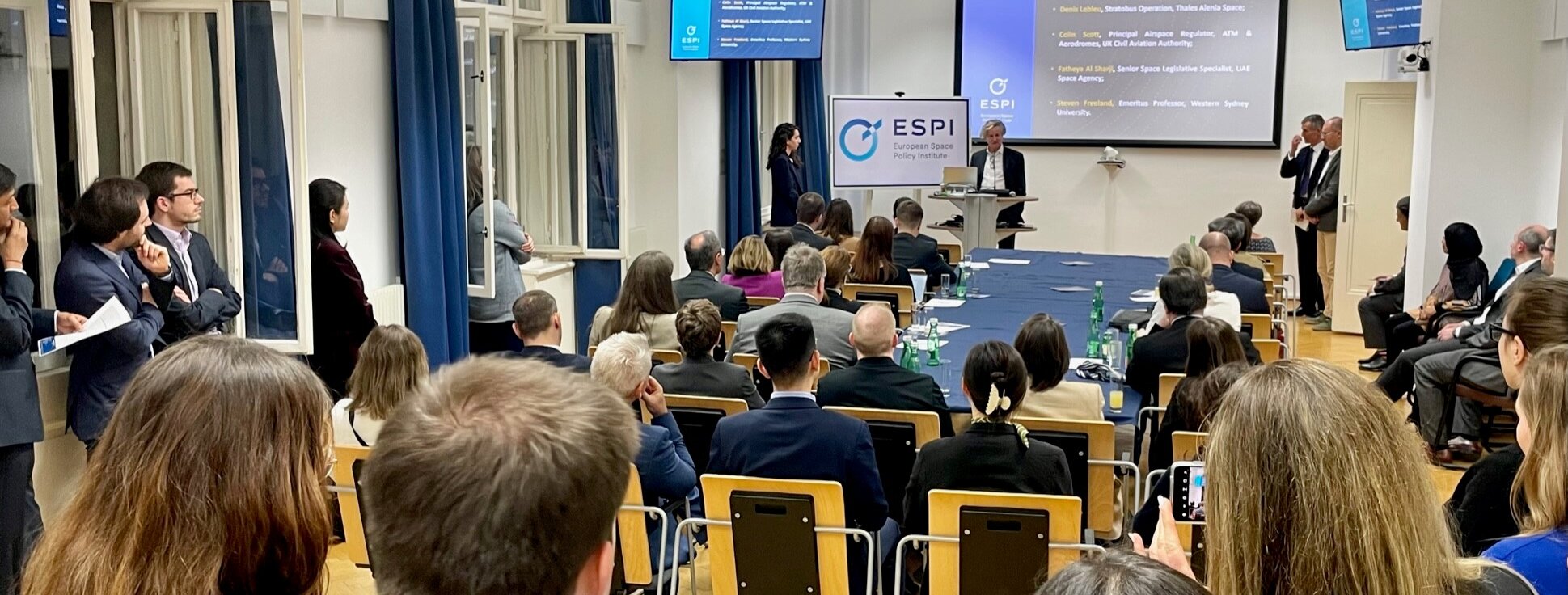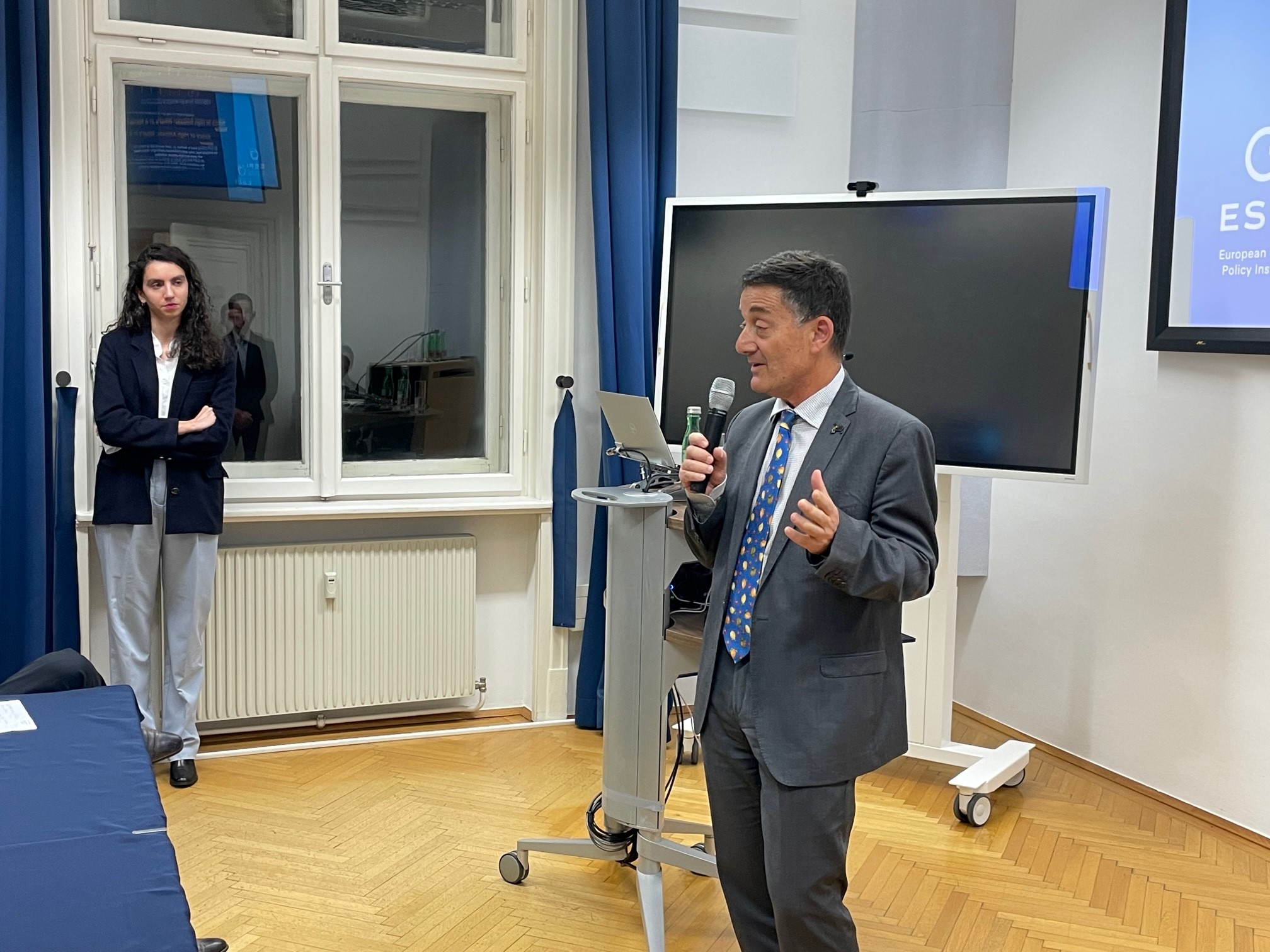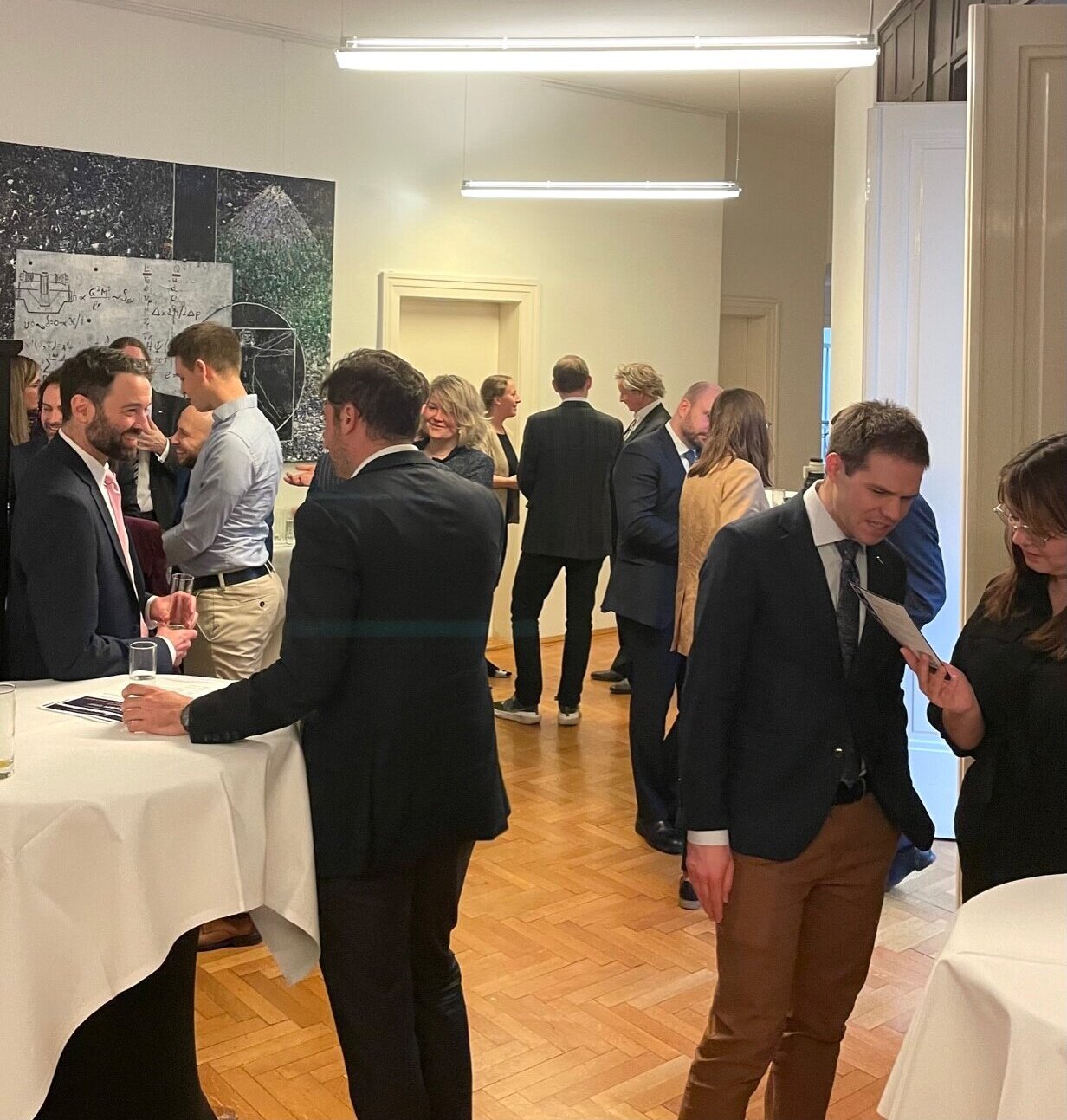
On March 23rd, 2023, the European Space Policy Institute (ESPI) hosted an Evening Event themed “Space or High Altitude: What’s in a Name?”. The event took place at the ESPI premises in Vienna, as a side event Event to the 62nd UN COPUOS Legal Subcommittee.
Agenda item 6 (a) of 2023 UN COPUOS LSC is dedicated to the definition and delimitation of outer space. The topic has been a regular agenda item for the UN COPUOS for over half a century. While the lack of a clear delimitation has not caused major issues, ongoing technological advancements and the ever-growing interest for HAPS, suborbital flights, and space tourism, and are now posing new policy and legal challenges.
The ESPI-Side Event aimed to facilitate the discussion on these issues, by bringing example of legislation addressing the difficulties surrounding high altitude activities, as well as an industry perspectives As experienced in other domains, technology is moving faster than legal instruments. Those technologies can provide a fresh inputs to the legal debate, with new policy and legal challenges to be addressed to fit/adapt with the new technologies in an safe and efficient manner.
To address this subject, we had the pleasure to host four distinguishing speakers:

- Denis Lebleu, Stratobus Operation, Thales Alenia Space;
- Colin Scott, Principal Airspace Regulator, ATM & Aerodromes, UK Civil Aviation Authority;
- Fatheya Al Sharji, Senior Space Legislative Specialist, UAE Space Agency;
- Steven Freeland, Emeritus Professor, Western Sydney University.
Thales Alenia Space’s Denis Lebleu provided a clear overview of the technical dimension of the topic, a well as insights on the developments of the European higher altitude regulatory regime. In particular, High Altitude Platform Systems (HAPS), such as Stratobus, were launched as new unpiloted vehicles capable of providing defence surveillance monitoring, an increase in navigation capabilities, and high-performance missions.
In recent years, we have seen several nations increasingly addressing those questions in their regulatory frameworks. Colin Scott from UK Civil Aviation Authority presented their national space legislation and regulation. The Space Industry Act 2018 created the high-level framework to enable launches to take place from the UK. The act applies when a rocket or other vehicle capable of operating beyond the stratosphere or a balloon capable of reaching the stratosphere carries crew or passengers. In addition, Common Licensing Arrangements, usage of a single language/definitions for describing HAO to increase safety, integration simplicity, and environment for users and operators, and well-defined safety requirements are key parts of best practice for harmonised legislation.

Subsequently, Fatheya Al Sharji from UAE Space Agency presented the UAE Federal Law No 12 on the regulation of the space sector released in 2019. The legislation defines space (Identified area) as a region that is at least 80 kilometres above the average sea level. In addition, it defines High Altitude Activities as activities that are above the scope of air traffic control and lower than the Identified Area.
Finally, Professor Emeritus at Western Sydney University, Steven Freeland, briefly presented the Outer Space and High-altitude Activities Act from 2017, and stressed the uncertainties surrounding the authority responsible for regulating high-altitude activities and traffic issues. Indeed, despite the fact that a number of measures are currently in place, a great deal of work remains to specify the responsible regulator and guarantee that safety, integration, and environmental issues are addressed. He concluded his intervention with a call for action in this domain.
Following the speakers’ presentations, a moderated conversation allowed for an open exchange of ideas and viewpoints on the issue.




